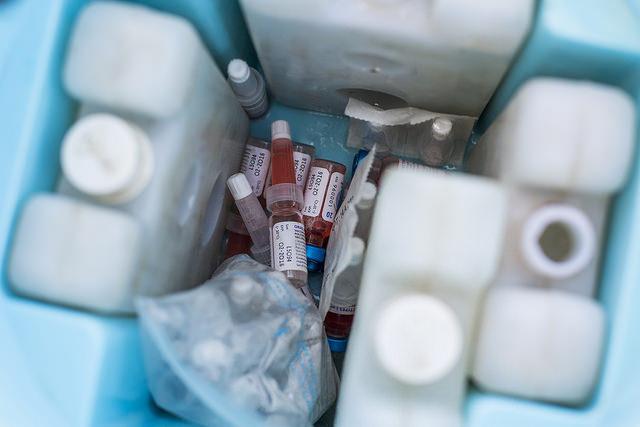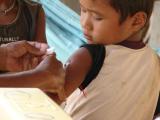World Health Organization (WHO) vaccine advisors wrapped up a 3-day meeting in Geneva yesterday and made recommendations regarding immunization for several diseases, including polio, cholera, Ebola, and diphtheria.
Today, the agency released a summary of its 15-member Strategic Advisory Group of Experts (SAGE) meeting and will publish a full report in a June issue of its Weekly Epidemiological Record.
IPV shortages still an issue
The group lauded recent progress toward eliminating wild poliovirus (WPV), noting that only 8 WPV cases have been reported of the past 6 months, down from 32 cases reported over the same time period last year.
Several countries are switching over from oral polio vaccine (OPV) to inactivated polio vaccine (IPV), but ongoing shortages of IPV are complicating efforts. Last October, SAGE advisors recommended a dose-sparing strategy for the first time. IPV doesn't carry the risk of vaccine-derived polio seen with OPV.
Given ongoing shortages, SAGE said that in the short term, regional and national advisory groups should recommend two fractional IPV doses in immunization schedules, when possible, if countries have access to single-doses of 5-dose vials, the capacity to do intradermal injections, and a good communication plan for parents and health providers.
They also urged that IPV be prioritized for routine immunization and that the WHO review country prioritization, balancing the size of the population with no IPV protection with recent type 2 vaccine-derived polio detections.
SAGE also discussed several policy issues for after the OPV global phase-out, such as IPV dose number, timing, and how long to continue IPV.
Cholera vaccine becoming a useful tool
Since the world now has three whole-cell killed cholera vaccines, which so far have good safety profiles and show sustained protection, SAGE recommends that they be used in endemic countries, in humanitarian crises that carry a high risk of cholera outbreaks, during outbreaks, and alongside other control and prevention strategies.
They also noted that there are considerable benefits and very few risks for including pregnant women. However, they noted that cholera vaccination is an adjunct to the mainstay of cholera control, which revolves around appropriate case management; water, sanitation, and hygiene interventions; and community mobilization.
Ebola outbreak recommendation
In reviewing Ebola vaccine issues, the group noted that there are 12 candidate Ebola vaccines, but phase 3 studies have only shown clinical efficacy and effectiveness for one: VSV-EBOV.
In the event of an outbreak before any of the vaccines are licensed, SAGE recommends that VSV-EBOV promptly be deployed in a ring vaccination strategy under the Expanded Access framework, with informed consent, and with good clinical practices.
The rollout should be tailored to the social and geographic needs of the outbreak setting, prioritizing contacts, contacts of contacts, local and international health workers in the outbreak area, and health workers in the at-risk areas.
Also, they recommended that the Expanded Access study protocol be implemented soon after Ebola cases are confirmed to collect further information on vaccine safety, efficacy, and effectiveness.
So far SAGE doesn't have enough evidence on any of the Ebola vaccines to make a conclusive recommendation for mass immunization of the general population or for vaccinating healthcare workers outside of outbreak situations.
Diphtheria antitoxin shortage
Experts discussed stalled efforts over the past 5 years in reducing diphtheria levels, with cases still occurring in unvaccinated or incompletely vaccinated people. They underscored the need for heightened surveillance and the need to better harmonize other childhood vaccinations.
They also aired grave concerns about limited or expired global supplies of diphtheria antitoxin, which can improve survival when the disease is suspected. Members urged the WHO to work with partners to establish a virtual stockpile and to identify a way to support the development of a monoclonal antibody as an antitoxin alternative.
In a related development, an editorial today in The Lancet said lack of financial incentives and lack of a market has led to the decline in production of diphtheria antitoxin. Recent cases in Spain and Belgium have exhausted or nearly depleted stocks of the drug in some European countries. Of diphtheria, the authors wrote: "It is a newly neglected disease that still resides among the cracks of the most privileged health systems."
See also:
Apr 28 WHO SAGE meeting notes
Apr 28 WHO media briefing audiofile
Apr WHO SAGE meeting background materials
Apr 28 Lancet editorial
Apr 28 University of Exeter press release















